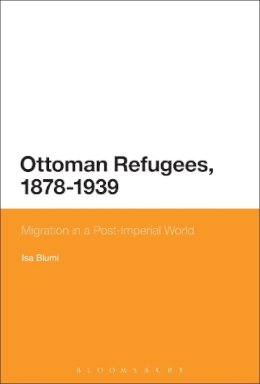
Ottoman Refugees 1878 1939
Blumi Isa
In the first half of the 20th century, throughout the Balkans and Middle East, a familiar story of destroyed communities forced to flee war or economic crisis unfolded. Often, these refugees of the Ottoman Empire - Christians, Muslims and Jews - found their way to new continents, forming an Ottoman diaspora that had a remarkable ability to reconstitute, and even expand, the ethnic, religious, and ideological diversity of their homelands.
Ottoman Refugees, 1878-1939 offers a unique study of a transitional period in world history experienced through these refugees living in the Middle East, the Americas, South-East Asia, East Africa and Europe. Isa Blumi explores the tensions emerging between those trying to preserve a world almost entirely destroyed by both the nation-state and global capitalism and the agents of the so-called Modern era.
Product Details
About Blumi Isa
Reviews for Ottoman Refugees 1878 1939
R.W. Zens
CHOICE
This study examines many refugee groups and geographic regions and taps into multiple historiographical debates, whether on violence, integration, or Subaltern agency. The unifying theme of global capitalism holds these eclectic pieces together very well in a complicated narrative. This thought-provoking work should be of interest not only to Ottoman and Middle Eastern specialists but also to theorists in refugee studies, world historians, and students of global capitalism.
Vladimir Troyansky, Stanford University
Journal of Refugee Studies
Blumi’s book is a valuable contribution to Ottoman studies … It addresses issues that had been only occasionally scrutinized, and it provides valuable insights. It is also an effort to 'deorientalize' and 'de-provincialize' the Ottoman Empire. The account is also a global history. Addressing international networks and connections, it breaks down national borders that still continue to shape historians’ perceptions, consciously or unconsciously.
Dogan Gurpinar, Istanbul Technical University
American Historical Review
